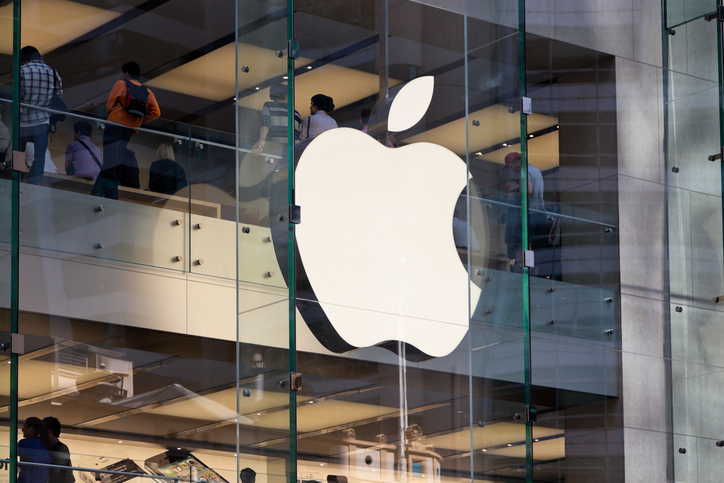Apple Reaches $95 Million Settlement Over Siri Eavesdropping Lawsuit: A Step Toward Privacy Accountability
Apple Inc. has agreed to a $95 million settlement to resolve a class action lawsuit filed by users who accused the tech giant of unlawfully listening to their conversations through its voice assistant, Siri. The lawsuit centered on claims that Siri inadvertently recorded and shared conversations with third parties, particularly advertisers, without user consent. This settlement, which will impact a significant number of Apple device owners, is a clear indication of the growing scrutiny of tech companies’ privacy practices in an increasingly digital world.
The Allegations Behind the Lawsuit
The lawsuit alleges that Apple’s virtual assistant, Siri, recorded user conversations even when the device wasn’t triggered by the “Hey Siri” wake phrase. The plaintiffs further contended that these voice recordings were then shared with advertisers who could analyze them for targeted marketing. While the exact scope of this practice is not fully disclosed, the lawsuit claimed that Apple violated users’ privacy rights by collecting and using sensitive information without adequate consent or transparency.
Although Apple has not admitted any wrongdoing in the case, it has decided to settle to avoid a prolonged court battle. The company has stated that it did not intentionally record or disclose conversations to third parties without consent. However, as part of the settlement agreement, Apple has committed to ensuring that all Siri-related audio recordings collected before October 2019 are permanently deleted.
Settlement Terms and Financial Impact
As part of the settlement agreement, Apple has agreed to compensate users who owned Siri-enabled devices between 2014 and 2019. Each claimant is eligible to receive up to $20 for each eligible device they owned during that time period. The total settlement amount of $95 million will be distributed to affected users in proportion to the number of eligible devices they owned. Legal fees, which are expected to total approximately 30% of the settlement amount, will also be deducted.
Apple’s decision to settle, despite denying any wrongdoing, helps the company avoid the risks associated with a lengthy and costly court trial. A trial could have resulted in significantly higher payouts or reputational damage to Apple. By agreeing to this settlement, the tech giant can resolve the issue quickly while maintaining its stance that it has not engaged in any intentional misconduct.
Broader Implications for Apple and the Tech Industry
Apple’s settlement comes at a time when the tech industry faces mounting pressure to address privacy concerns. Voice assistants, including Siri, Amazon’s Alexa, and Google Assistant, have become ubiquitous in modern life, but their widespread use has raised questions about how personal data is collected, stored, and shared. The Siri eavesdropping case is just one of several privacy-related legal challenges Apple has faced in recent years.
In addition to the $95 million Siri lawsuit settlement, Apple has been involved in several other significant legal disputes concerning privacy. For example, in January 2024, Apple began distributing funds from a $500 million settlement related to allegations that it intentionally slowed down older iPhones. Additionally, the company has been the subject of scrutiny in the UK, where it agreed to a $490 million settlement with Norfolk County Council earlier this year.
These legal battles highlight the growing concern over data privacy, particularly in an era where personal data is increasingly seen as a valuable commodity. As more consumers become aware of the extent to which their data is collected and used, tech companies are under increasing pressure to implement stronger privacy protections and be more transparent about their data practices.
Apple’s Financial Performance Amid Legal Scrutiny
Despite facing these legal challenges, Apple remains one of the most financially successful companies in the world. For the three months ending September 28, 2024, the company reported earnings of $94.9 billion. This success can be attributed to the strong performance of its flagship products, such as the iPhone, and the growing revenue from services like iCloud, the App Store, and Apple Music.
Apple’s ability to maintain its market dominance while navigating legal and regulatory issues speaks to its resilience and strategic vision. However, the company’s legal settlements also underscore the increasing complexities of operating in a highly regulated environment where privacy concerns are paramount.
A Changing Landscape for Privacy and Technology
The Siri eavesdropping lawsuit and its eventual settlement underscore the broader trend of increasing regulation and oversight of the tech industry. As governments around the world introduce new laws and regulations to address privacy issues, companies like Apple will need to adapt to meet evolving standards. In the European Union, for instance, the General Data Protection Regulation (GDPR) has already set a high bar for how companies handle user data. In the United States, the California Consumer Privacy Act (CCPA) and other state-level privacy laws are pushing for more stringent protections.
The increasing focus on data privacy will also likely spur changes in the way tech companies approach product development. For instance, Apple has made privacy a key selling point for its products, with features such as App Tracking Transparency and privacy labels on the App Store. However, the Siri lawsuit serves as a reminder that no company is exempt from scrutiny when it comes to how it handles user data.
Apple’s Privacy Challenges and Opportunities
While the Siri lawsuit is a significant issue for Apple, it is also an opportunity for the company to strengthen its privacy practices and rebuild consumer trust. By resolving the issue through a settlement, Apple is signaling its willingness to address user concerns and take responsibility for any potential lapses in its privacy practices.
As privacy concerns continue to dominate public discourse, Apple and other tech giants will likely face increasing pressure to implement more robust privacy safeguards. The outcome of this lawsuit and similar cases could set a precedent for how tech companies handle privacy in the future and how they navigate the legal and regulatory landscape.














